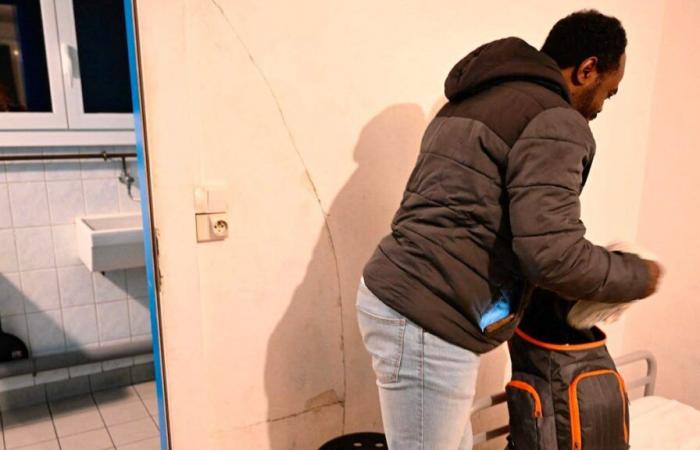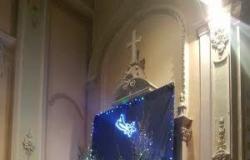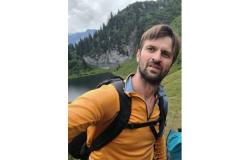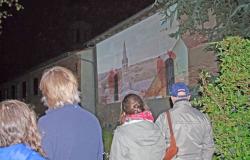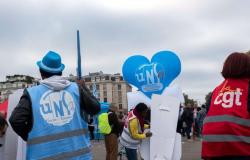“It’s very complicated” when it’s cold, at night, outside, says Mohammed, who arrived in Metz sixteen months ago, after a stay in Toulouse. He called the social emergency number (115) for the first time during the day, asking for shelter for the night, and got it. “It’s hot, it’s very hot in here,” he said, with a smile on his face, pointing to the heater at the back of his single room, number 9.
On the cover, the young man, who will not say his last name, his age, or his country of origin, takes a few things out of his bag: a highway code, his file for getting his driving license and an advertising brochure for higher education. A warm night will help him “pass the exam” for his license, he assures us, still wearing his down jacket.
Ten people, the normal reception capacity of the stop, are accommodated at the beginning of December on the first floor of the building located not far from the city center of Metz. The center also offers lockers and day reception. When the Extreme Cold Plan is activated, fifteen people can be accommodated.
Helping more women
One of these one-night residents comes down to greet the members of the Est Accompagnement association, responsible for the structure, and above all to “thank” them for this moment of respite. People who have the opportunity to sleep in a warm place for a night arrive at 10 p.m. and leave the establishment at 7 a.m.
The choice of offering single rooms – whereas they were rooms for four a dozen years ago – also makes it possible to accommodate more women. They receive the green light to settle in after calling 115, the social emergency number.
In the morning, they are directed to the Abbé Pierre Foundation, which offers them breakfast, the result of an understanding and good territorial coverage, underlines Nathalie Lombard, head of department within the association. For the association, these night stops are a way of reaching people who are usually further away from the help offered to them.
Capturing a different audience
“There are people who don't dare to say” their difficulties, “but at some point it comes to light, because there is a big need,” explains Ms. Lombard. In winter, social workers note that homeless people may refuse the help offered during the day. “In the evening, the civil protection team will rotate, meet them again and offer them accommodation, try to capture them,” explains Michel Gocel, the director of Est accompaniment.
When they are accommodated, social workers can contact them via an appointment “the next day”. Last year, “the majority of people who had been accommodated by the night stop then found an accommodation place in the emergency or in integration”, according to him. “The idea is also to capture an audience that we will not see for the rest of the year,” adds Mr. Gocel.
From 600 to 3,200 accommodation places
In the hall, where overnight guests will go the next morning to leave the premises, a telephone with a direct line allowing you to call the social emergency number is available: many call, at the very beginning of the day, the 115. If all situations are examined, and the vulnerability of people is always taken into account, places at the night stop are rare.
20 years ago, the association offered 600 accommodation places in total in Moselle. It now has 3,200, underlines Mr. Gocel. “The supply tries to meet needs, but it remains a daily challenge.”
(afp)

